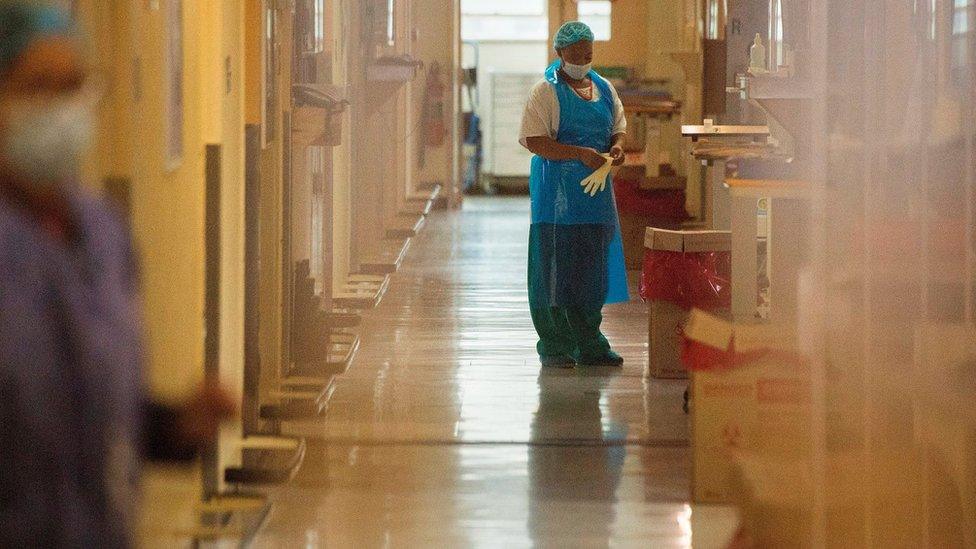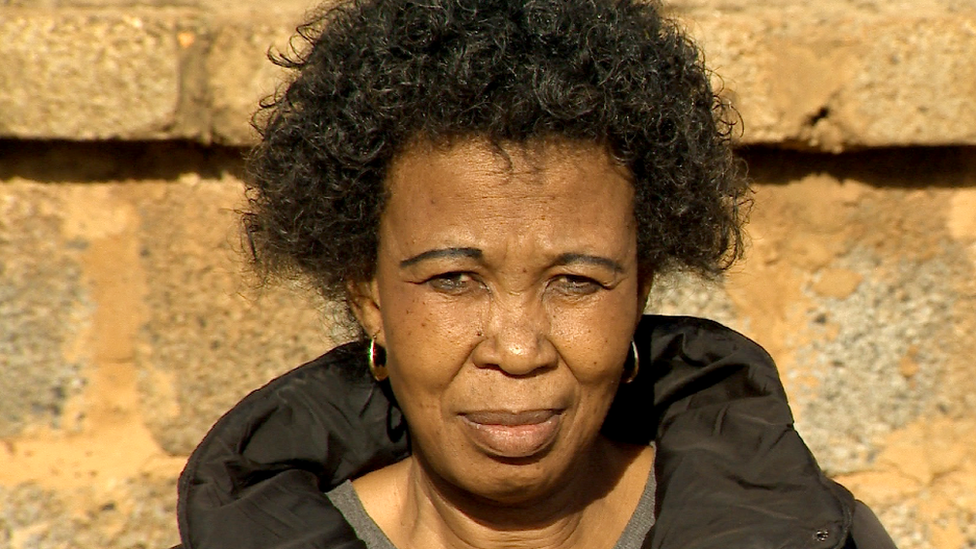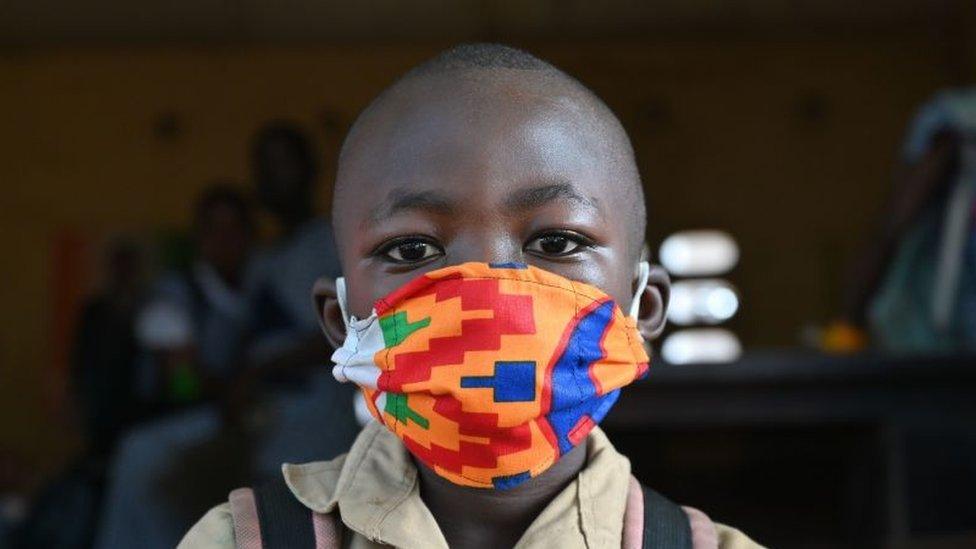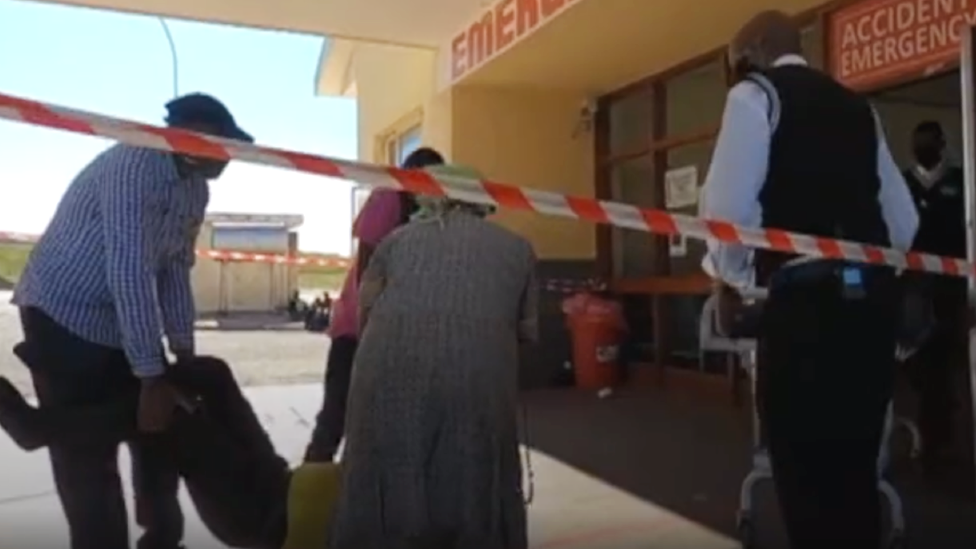Coronavirus in South Africa: Misuse of Covid-19 funds 'frightening'
- Published

South African authorities paid five times the recommended price for PPE, the auditor general finds
A scathing report into the use of South Africa's Covid-19 relief fund has revealed overpricing and potential fraud, the auditor general says.
Kimi Makwetu says the audit uncovered "frightening findings".
In some cases personal protective equipment (PPE) was bought for five times more than the price the national treasury had advised.
The report also has flagged up 30,000 relief grants which "require further investigation".
Mr Makwetu has been tracking the spending of 500 billion rand ($26bn; £19bn) which is equivalent to 10% of the country's gross domestic product.
"A lot of the effort that we put into this on the detection side of things has revealed a number of frightening findings that require to be followed up very quickly so that there is no significant passage of time before the required actions are implemented," he said at a press conference on Wednesday.
The allocated funds were meant to assist vulnerable households with food parcels, unemployment grants, support small business, farmers and to also procure personal protective equipment.

Will the corrupt get caught?
By Nomsa Maseko, BBC News, Johannesburg
Corruption was "amplified" - that's the term used by South Africa's auditor general in his report on the misuse of funds which were aimed at mitigating the impact of coronavirus in the country.
Wednesday's announcement of the damning findings has angered many who had suspected there was fraud and corruption in how the government dealt with the allocation of funds, particularly the millions of dollars which were supposed to purchase PPE for schools and hospitals.
South Africans expect President Cyril Ramaphosa to act decisively on this issue.
It appears he has already begun.
Politicians accused of corruption, particularly those within the governing ANC, were told to resign and open themselves up for investigation by law enforcement agencies who have started to investigate many illegal transactions which took place.
But South Africans want to see real action - they want to see politicians facing trial and being convicted for corruption.
That's the only way to convince them that the government is serious about tackling corruption.

In May, South Africa introduced social relief of distress grants of 350 rand per month for people who are unemployed.
But Mr Makwetu said the system was vulnerable to hackers, fraud and "double dipping".
Out of four million people in the database he said the "somewhere around 30,000 beneficiaries require further investigation".
He also said there was a need for the area of procurement of PPE to be "further scrutinised" as "there are instances of the price being 200% and, in some instances, fives times more" than the price the national treasury had advised.
He referred a list of cases pointing to the high risk of fraud to investigators and is expected to publish a fuller report in November.
- Published24 August 2020

- Published16 July 2021

- Published15 July 2020
